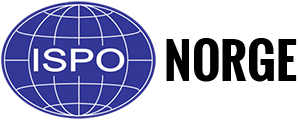

WHO, in partnership with the International Society for Prosthetics and Orthotics (ISPO) and the United States Agency for International Development (USAID), has published global standards for prosthetics and orthotics. Its aim is to ensure that prosthetics and orthotics services are people-centred and responsive to every individual’s personal and environmental needs. The standards advocate for the integration of prosthetics and orthotics services into health services, under universal health coverage. Implementation of these standards will support countries to fulfil their obligations under the Convention on the Rights of Persons with Disabilities and towards the Sustainable Development Goals, in particular Goal 3: Ensure healthy lives and promote well-being for all at all ages.
The standards provide guidance on the development of national policies, plans and programmes for prosthetics and orthotics services of the highest standard. The standards are divided into two documents: the standards and an implementation manual. Both documents cover four areas of the health system:
- policy (governance, financing and information);
- products (prostheses and orthoses);
- personnel (workforce);
- and provision of services.
The Standards have been developed through consultation with experts from around the globe via a steering group, development group and external review group.
Source: http://www.who.int/phi/implementation/assistive_technology/prosthetics_orthotics/en/









Du må være logget inn for å legge inn en kommentar.